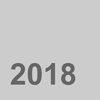|
Vortrag | Lecture
Research Workshop "Anthropocene and Citizen Science: Evidence Gained through the 'Opening-up' of Academic Knowledge Production?", Deutsches Museum München & Rachel Carson Center, MCTS TUM & LMU München, July 18-20, 2018 | 18-20.07.
How does the interaction between different expert and public spheres provoke new negotiation processes in terms of accumulating and gaining evidence? It almost seems too obvious to address this question to art – a field of profession and social interaction that is by tradition deeply involved in a whole range of entanglements and different degrees of intertwinedness between the mentioned spheres. However, the latter is not only true on a more general level, but indeed also specifically of interest for both areas in focus here – albeit, at least on the first glance, in considerably different ways.
It is barely by accident the debates about the Anthropocene have found major platforms in interdisciplinary projects with numerous contributors from the arts (see i.e. the "Anthropocene Project" hosted by HKW Berlin, as well as a fair amount of more recent exhibitions, symposia and publications dealing with the subject). Both the issues addressed and the methods used within this context – including artistic research, interdisciplinary cooperation, activist and/or educational efforts as well as participatory strategies that involve a broader public – have a long tradition in the arts that can be traced back to the second half of the 20th century, and many of the more recent projects build upon these fundaments of experience. Plus, there are also good reasons why artists are welcome as contributors: Not only are artists professionals in terms of visualization and communication, that is: in the generation of media, image, objects and environments to "show and tell". Moreover, many artist-run projects in this area act local, but are connected in multi-local networks and communicated 'globally' – and therefore are, especially considering their relatively low budgets, indeed highly efficient mediators. However, despite their prominent visibility their and their serious engagement they are not necessarily considered as valuable partners in the are(n)a of knowledge production.
Thus, in the first place it seems artistic projects play a different role in the communication and negotiation processes related to the "opening-up" of academic knowledge production than citizen science projects do; especially in case the latter are considered primarily as helpful tools for data collection rather than as possible platforms for the exchange of different kinds and modes of knowledge and expertise, and/or as possible contexts for knowledge generation and science education.
But what if we understand citizen science in a different way – one that is perhaps closer to the amateur and DIY science movements that can look back to a considerably long tradition in our culture? As a matter of fact, over the past decades many artist-run as well as interdisciplinary initiatives have been developed within this field; most prominently perhaps in the area of Biohacking – a field considerably far from featuring a backwards-directed romanticism about the contemporary status of biosciences –, but of course not at all limited to the latter, as also a closer look to the previously mentioned field and even to the "showcases" of the Anthropocene-related debate might reveal.
However, not only from the standpoint of academic sciences these initiatives are still often kept aside and considered as 'second-class' knowledge contributors. Due to their working formats (i.e. workshops), their goals (i.e. practical knowledge), and, according to the latter, results (i.e. tools instead of art objects) they are often not as prominently represented and representable in art institutions either: The more artists engage in formats that are not compatible with the standards of the art system, the less they are perceived as valuable contributors and thus still take the risk to be excluded from the latter (and this means not only the market, but also the institutional and academic art history, despite their current affinities to subjects related to the sciences). Yet their efforts and results are probably far more important not only in terms of the mentioned negotiation processes, but also more generally for developing sustainable perspectives for a collective knowledge production so desperately needed in the very times we nowadays use to call the "Late Anthropocene" (not to mention a future Post-Anthropocene).
In my contribution to the workshop, I want to discuss exemplary projects to critically address not only the promising potentials and perspectives, but also the challenges and problems of artistic engagement in a still deeply contested zone.
Hintergrundinformationen | Background Information:
Projekt "DIY SCI" auf www.under-construction.cc | Project "DIY SCI" at www.under-construction.cc
Projekt "WerkzeugWissen – Wissenswerkzeuge" auf www.under-construction.cc | Project "Tools of Knowledge – Knowledge of Tools" at www.under-construction.cc
Forschungsschwerpunkt Do It Yourself-Kulturen auf www.under-construction.cc | research focus Do It Yourself Cultures at www.under-construction.cc
Forschungsschwerpunkt TechnoNaturKulturen auf www.under-construction.cc | research focus TechnoNatureCultures at www.under-construction.cc
projects:
DATA & DISPLAYS, D.I.Y. CULTURES, DIY SCI, how2:how2, (IN)VISIBLE CITY, Knowledge of Tools - Tools of Knowledge, MEDIOLOGIES, Cultures of Sustainability, TechnoNatureCultures, TOYS AND/AS TOOLS, Urban Biotopes : Biotope City
mainprojects:
D.I.Y. CULTURES, (IN)VISIBLE CITY, MEDIOLOGIES, TOYS AND/AS TOOLS
tags: aesthetics, agency, alltagskultur, alltagstechnologie, alltagstechnologien, art & media, art & public, art & science, art & society, ästhetik, biosciences, biowissenschaften, commons, communication, design, diy, do it yourself, do it yourself cultures, do-it-yourself-kulturen, ecology, environment, everyday culture, everyday technologies, geek, green, grün, knowledge cultures, kommunikation, kunst & gesellschaft, kunst & medien, kunst & öffentlichkeit, kunst & wissenschaft, modelle, models, ökologie, participation, partizipation, perception, repräsentation, representation, tools, umwelt, vermittlung, wahrnehmung, werkzeug, wissenskulturen
|

